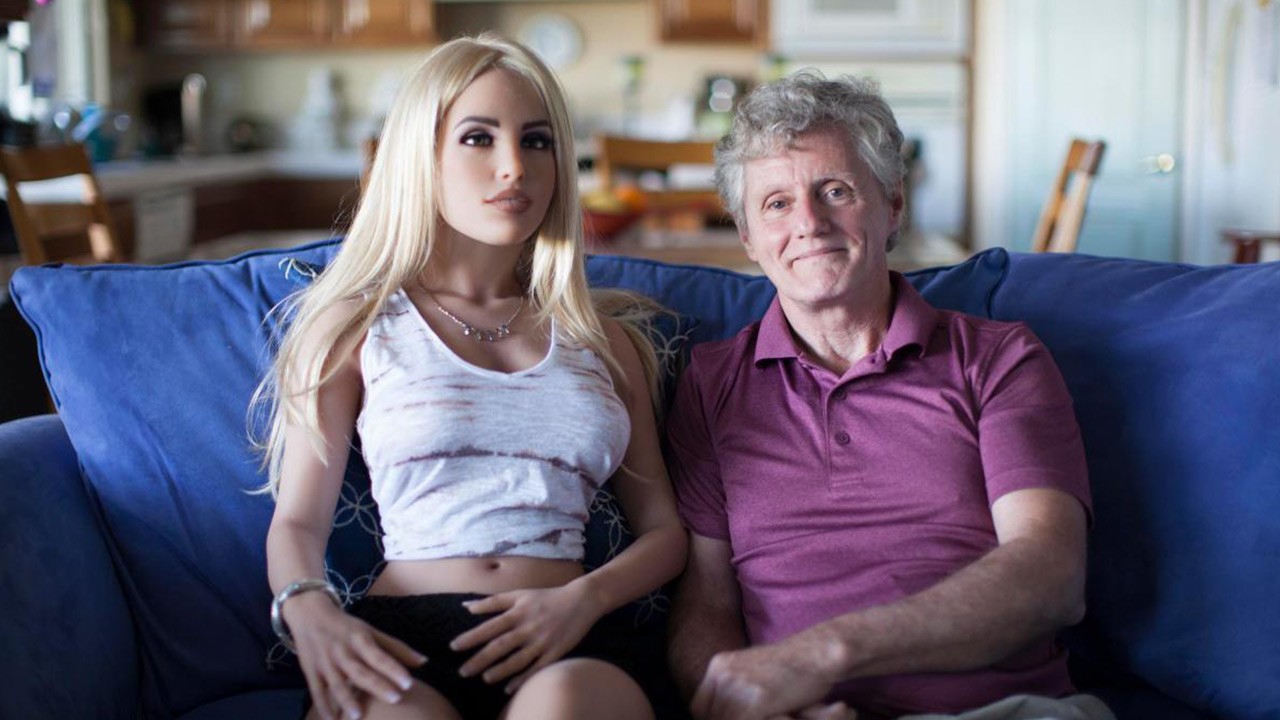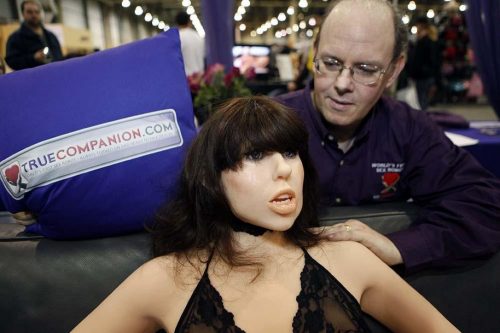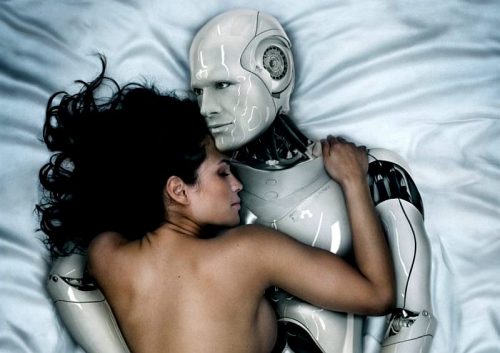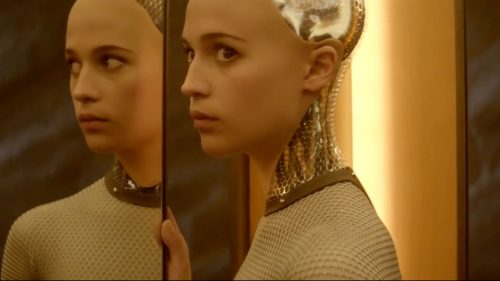Would you have sex with a robot?

Cause chances are that you will in the future. Indeed, the development of sexbots is accelerating since we asked "Yes or No to SexBots" in December 2014 and, as Rachel Kaser put it for TheNextWeb, "It's time to stop freaking out about humans f*cking robots". Just a couple of weeks ago, two researchers from the University of Manitoba published a paper "The rise of digisexuality: therapeutic challenges and possibilities". But what is Digisexuality you say? It's a term that describes "people whose primary sexual identity comes through the use of technology". This doesn't describe robotics fetish but people having actual relationships with machines.
What are sexbots?
Sexbots are robots designed to answer a human's sexual desires. With the development of AI and robotics, they changed the sex doll industry by bringing movement and speech to the dolls. They're getting more and more lifelike, whether on their physical appearance, or their interactions with their owner. To this day, the vast majority of the sexbots are designed to have a woman's appearance. With price ranging usually between $5,000 and $10,000, they're a luxury item. But as they keep getting better in their reproduction of humans (thanks to AI and innovation in engineering) and cheaper, they will soon be something very common. Which leads us to the question: how will they transform our society?
Will sexbots transform our human interactions for the worse?
While the fact that digisexualities will be commonplace in a couple of years is undisputable, the ethical and societal ramifications are still unclear. For instance, the reveal of a special mode on the Roxxxy TrueCompanion sex doll earlier this year generated an intense debate. Indeed, the "Frigid Farrah" mode is designed for the user to simulate rape. Which lead to the question of knowing if robots will mitigate or normalize sexual violence.
Furthermore, with robots only being able to display a limited range of emotions (at least until we reached a superior level of AI) one can wonder how that will affect human to human relationships. A paper published last year in the International Journal of Social Robotics asked the question
What will be the impact of human–robot relationships on the relationships we have with other humans? Will it change our (moral) standards of friendship and ultimately lower them? Hence, another concern here is that if we come to accept these unidirectional emotional bonds with robotic others, will this degrade our relationships with other humans? There is indeed a concern whether robot technology might replace human contact all together.
Last but not least, one can wonder if by having their sexual desires answered by a tailor-made machine, and following the theory of the path of least resistance, humans will lose the motivation induced by sexual desire and will to seduce?
Or will they actually improve lives?
As sexbots will be a common thing, we should shift the debate to highlight what are their benefits for society and determine if they outweigh the disadvantages. For a start, looking at it from a pure clinical perspective, sexual robots don't have to give consent, they're not subject to pregnancy (whether becoming or making someone pregnant), and they're not prone to carry, develop, and transmit STDs (as long as they're used hygienically and cleaned correctly).
Furthermore, an article named "Love and sex in the Robotic Age: exploring human-robot relationships" published in the Institution of Engineering and Technology website, said:
most experts in the field believe robot companions can greatly benefit sections of society such as the elderly, the lonely and the socially challenged
Indeed, when a robots become an object of affection, comfort, and emotional importance for its user, it fulfills a need that not many things can. It can help people feel loved and be happy. So why should we deprive them from that?
Drs MacArthur and Twist, the authors of the Digisexuality paper mentioned earlier, said the following in a Broadly interview:
We shouldn’t be afraid of them. We should be willing to experiment with them, and to enjoy what they have to offer. People’s anxiety around sex and technology can cause them to miss out on things they might really enjoy.
And by that, they expressed the fundamental thing about modern and future robotics. We should embrace the robots for the benefits they can bring to our lives, and not rejected for the things they can't do. (Yet).
Thanks for helping to keep our community civil!
This post is an advertisement, or vandalism. It is not useful or relevant to the current topic.
You flagged this as spam. Undo flag.Flag Post







